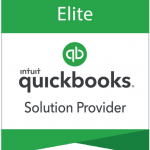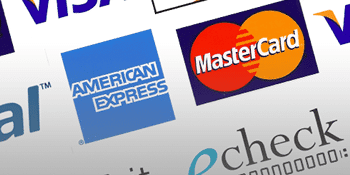Given their lower startup costs compared to a brick-and-mortar enterprise, online businesses have exploded in popularity. While some—in particular small eBay shops—may restrict payment options to PayPal, for maximum sales and customer satisfaction it will be necessary to accept credit and debit cards from customers. That means making the right payment processing decisions up front so here we will discuss the easiest way to accept credit card payments online based on the size and needs of your business.
First, understand that there are two basic ways to accomplish this.
For Small Businesses
If your business is new and relatively small, you may not want to make the investment of time and effort required for a dedicated online payment system. (That is the second option, to be discussed in a moment, and you’ll understand better once you see the added complexity it involves.) If that’s the case, you may be better off with a payment processing company.
Consider a Payment Processing Company
A payment processing company (we’ll go with PPC for simplicity) offers a bundled solution. Examples of this would be PayPal, Square and Google Checkout. What really takes place is that the PPC accepts card payments on your behalf; in other words, technically the customer is paying them, not you. That eliminates the need for you to have your own internet merchant account and payment service provider, because the PPC already does.
The services of a PPC are easier and faster to acquire (especially for a new business with no history). Transaction data is stored on the PPC’s servers, making them responsible for PCI compliance and protecting cardholder information. And of course, there will be no need for you to incorporate payment processing into your site.
Downsides to a PPC
The first downside is probably obvious: in return for these services, you’ll pay more. At first that extra cost may be outweighed by convenience, but eventually you may find it makes better business sense to move to doing your own payment acceptance. So just how much is more? The answer is “It depends.” Different payment processing vendors have different pricing models (a flat fee plus a percentage on each transaction, for example, which is the PayPal model, or a percentage of total sales) and may charge differently based on payment method or product type. Some will only process payments for certain business types, for example those that sell physical goods.
Another complication is that getting paid may take longer. In the worst cases, that can be as much as 60 days, though settlement periods that long are rare. The larger PPCs including PayPal and Google Checkout pay about as quickly as a traditional merchant processor. Take note of what settlement methods are available if you are shopping PPCs. ACH directly to your business account is naturally preferable, but some even offer a paper check mailed to you.
A final consideration is exactly how the PPC functions. Are customers required to create an account with the PPC in order to checkout? You may lose buyers at this point if so. Also see whether online invoicing (essentially what’s offered to auction winners on eBay) is available if that’s an option your business will need.
Alternatives for merchants processing more volume
If you prefer not to use a PPC, or your business has reached a size at which you want to transition away from your PPC, you’ll need two main things.
The first is an internet merchant account. For a higher volume business, this will most likely be the easiest way to accept credit card payments online. A conventional merchant account designed for a retail business will not be sufficient for an online business. Because of the added fraud risks involved with online purchasing (specifically called a “card not present” transaction), the terms and conditions of a plain-vanilla merchant account usually prohibit using that account for processing online payments. Be aware that the merchant processor will require your site to meet PCI compliance and other security standards.
The other piece of the puzzle is a payment service provider. Also called payment gateways, these vendors provide the “virtual terminal” that integrates with your site and processes the actual transactions. In other words, instead of a piece of hardware you have a service. As an enhancement, these providers will often also provide the shopping cart for your website.
Another option is the hosting of the payment pages, which needless to say, must be secure. They can sit alongside the rest of your site on your server or be hosted by the payment service provider. In some cases you can even find providers who are a single source for both your internet merchant account and your payment gateway.
Have questions? Need help?
Setting up an online business may not be as effortless as some of the ads make it seem. However, it need not be unduly complicated, either. A scalable solution to accepting card payments online may be to start with a full-service payment processing company and then take more of the responsibility yourself as your business grows. This is where we can help. We provide end-to-end payment solutions that with allow you accept credit cards online, in a retail location, over the phone and from mobile devices. We can even link all of these together with your favorite accounting platform for a completely automated solution. If you would like to find out more, give us a call at 866-949-7267 or click here to send us an email.


















